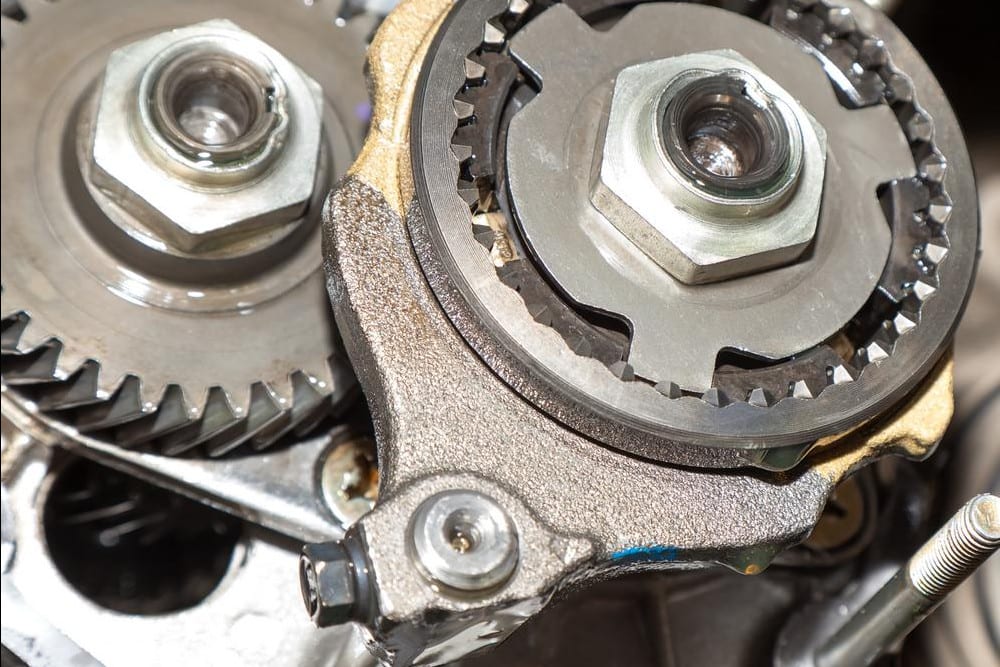

Front-wheel drive cars have CV axles that transmit power from the transmission to the wheels. However, in a rear-wheel drive system, a drive shaft connects to the transmission and transmits power to the rear differential. The driveshaft connects to the differential via the pinion shaft – a short shaft that extends from the front of the differential.
Your vehicle’s differential is filled with fluid – like engine oil but thicker. It’s designed to protect the gears inside from friction and heat. Because the pinion shaft connects the interior of the differential to the driveshaft, a seal must be used around the end to prevent differential fluid from leaking out. This is called the pinion seal.
The pinion seal is in use at all times. When the vehicle is parked, the seal’s job is much simpler, but when you put it in gear and begin driving, things change. Pressure builds up inside the differential (to an extent – it’s not the same level of pressure as found inside your engine) and differential fluid begins moving. The seal must be able to stand up to pressure, fluid motion and heat to prevent leaks.
In terms of lifespan, there’s no set duration for a pinion seal. Really, they last as long as they last. There are many different factors that come into play here. All seals will degrade with time and exposure to differential fluid, but your driving habits will have a significant impact on lifespan. For instance, if you regularly haul heavy loads, you’ll put additional wear on the seal. If you have a lift kit, or regularly go off-road, you’ll also shorten the lifespan of the seal.
Because the pinion seal prevents differential fluid from leaking out and damaging the gears inside, it’s important to know the signs that indicate the seal is beginning to fail. These include:
- Light leakage (signs of moisture) around the seal, where the pinion shaft enters the differential
- Substantial leakage around the area where the pinion shaft enters the differential
- Low differential fluid
If you are experiencing any of these problems or suspect that the seal is about to fail, a certified mechanic can help. One of our mobile mechanics can come to your home or office and inspect and replace the pinion seal if necessary.



